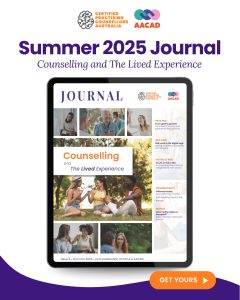Australia’s community services sector has undergone a remarkable transformation over the past 50 years, reshaping how we care for and support people across aged care, disability, and mental health services. From institutional care models to today’s inclusive, person-centred approaches, this evolution has been driven by landmark reforms, innovative policies, and a passionate, skilled workforce.
As a result, community, aged, and disability services today offer greater choice, autonomy, and inclusion—creating better outcomes for individuals and society as a whole.
From Institutions to Inclusion
Historically, support for older Australians and people with disability often meant institutionalisation—separating people from families, communities, and everyday life.
This began to shift in the 1970s, as a movement toward community-based care emerged. The focus turned to empowering individuals, supporting participation, and enabling independent, self-directed lives.
Today, services are integrated into local communities, reducing stigma and creating opportunities for inclusion and meaningful connection.
Legislative and Policy Reform
Australia’s shift toward inclusive and rights-based care has been underpinned by transformative laws and strategies such as:
These frameworks, aligned with international human rights principles, have:
- Prioritised client rights and dignity
- Promoted person-centred care and co-design
- Expanded access to education, employment, and community participation
This era of reform has raised expectations and strengthened quality, accountability, and inclusion across all levels of service delivery.
The NDIS: A Defining Transformation
The introduction of the National Disability Insurance Scheme (NDIS) marked a groundbreaking change in how disability support is delivered in Australia.
The NDIS empowers individuals to choose and control the services they receive, aligning supports with their personal goals and lifestyle. This shift has led to:
- The rise of innovative, tailored service models
- Greater specialisation and flexibility within the support workforce
- Enhanced client satisfaction and goal-oriented planning
The NDIS has redefined expectations—placing people with disability at the centre of service planning and delivery.
Meeting Today’s Evolving Needs
Australia’s community services sector continues to adapt in response to:
- An ageing population
- Rising rates of disability and mental health conditions
- Increased cultural and linguistic diversity
To remain relevant and effective, providers must deliver:
- Early intervention and preventative health approaches
- Comprehensive mental health services
- Culturally responsive, wraparound care models
Support workers now need multidisciplinary skills, cultural competence, and a strong understanding of trauma-informed, holistic care.
The Role of AACAD in a Changing Sector
As community services continue to evolve, so too does the need for qualified, supported professionals who can meet new challenges with confidence.
The Australian Association of Community, Aged and Disability Workers (AACAD) plays a vital role by:
- Promoting high standards across the workforce
- Providing access to professional development and training
- Advocating for the rights of both workers and clients
- Partnering with government, providers, and educators to shape the sector’s future
AACAD fosters a community where every member feels supported, recognised, and empowered to make a difference.
Looking Ahead: Inclusion, Advocacy, and Opportunity
AACAD’s commitment to inclusion, fairness, and professional growth ensures that no one is left behind as the sector transforms. Whether you’re a student, support worker, or provider, staying connected to a national body like AACAD helps you stay informed, prepared, and part of a meaningful movement.
Ready to Join a Growing, Purpose-Driven Sector?
If you’re considering a career in community, aged, or disability services—or want to grow within the profession—joining AACAD connects you with a network that values quality, advocacy, and positive change.
Together, we can shape a future where all Australians receive the care and support they deserve—delivered by a workforce that’s skilled, supported, and proud.




